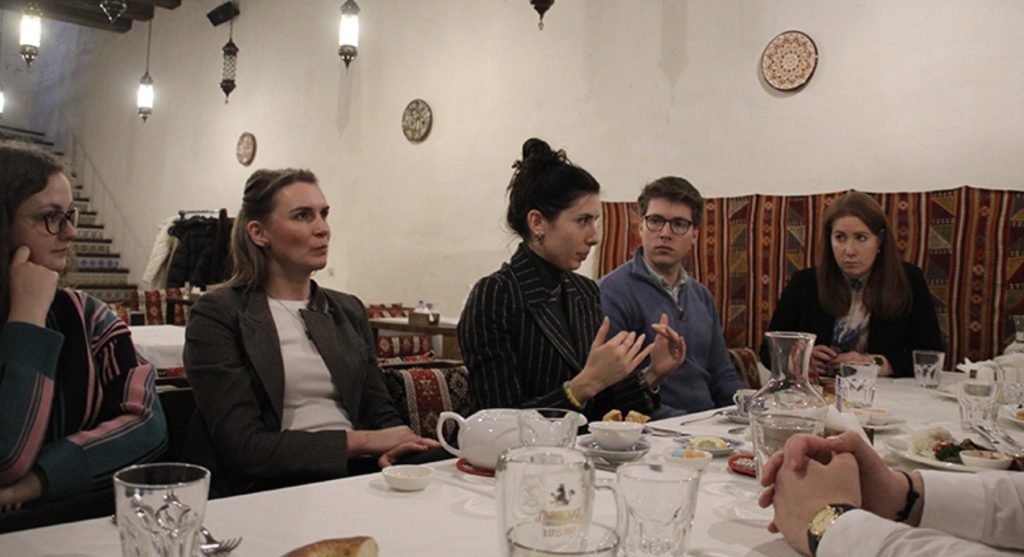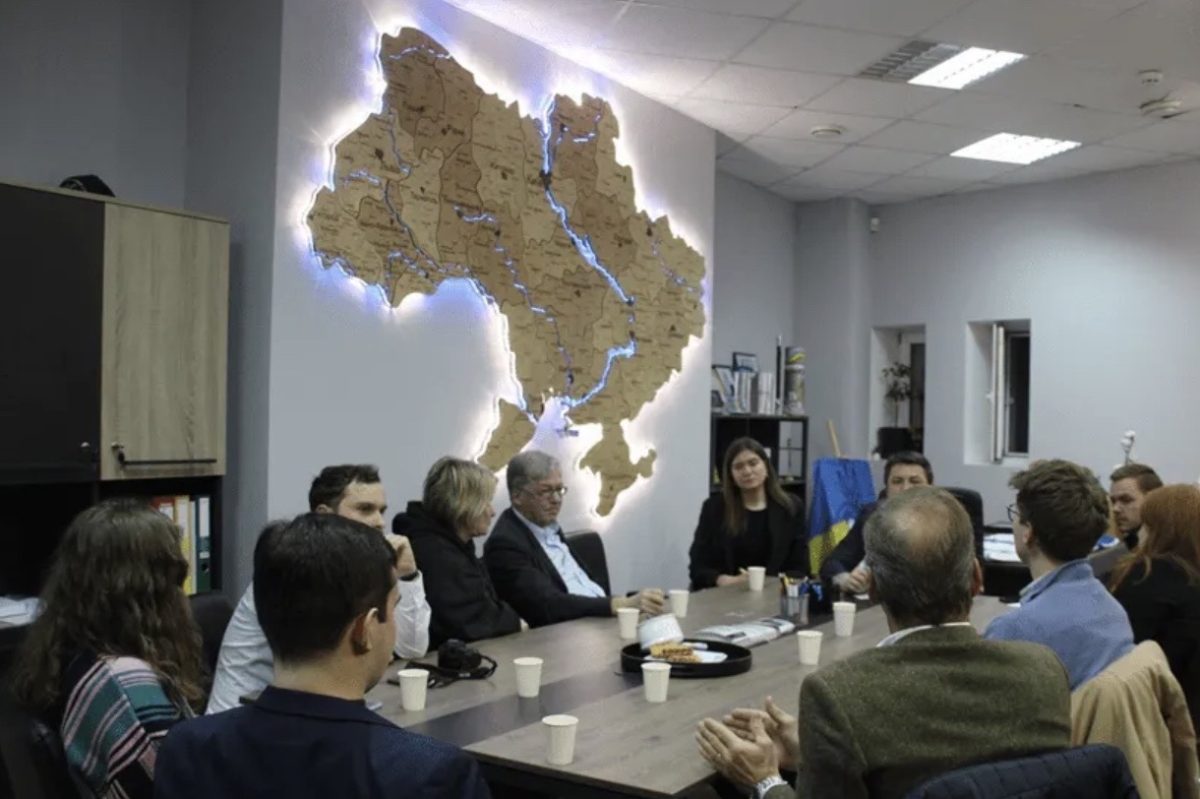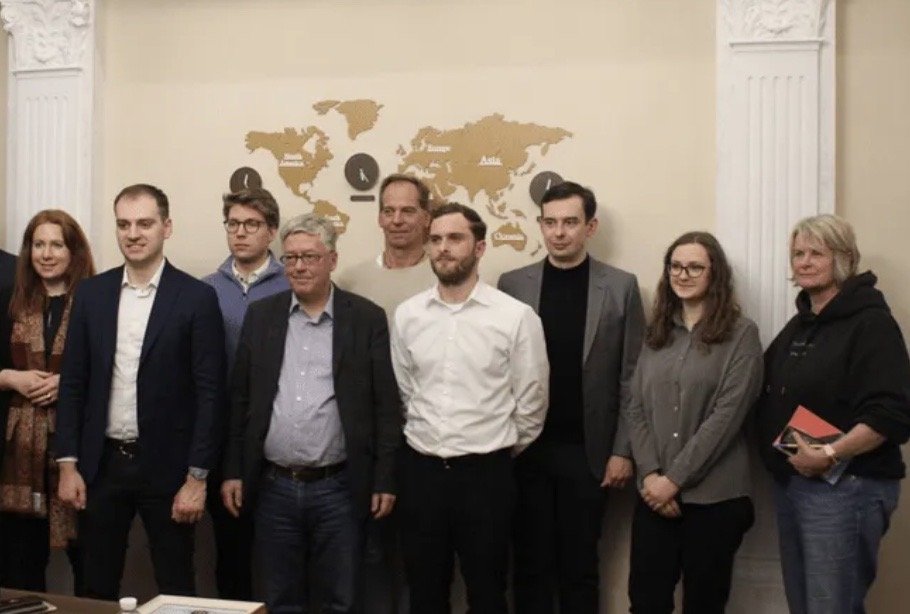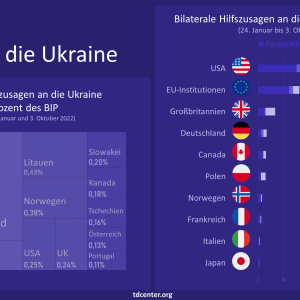For the TDC February began with a visit of the representatives of the Gesellschaft für Sicherheitspolitik (German Society for Security Policy), the oldest and largest association for security policy in Germany. The delegation was headed by Dr. Hans-Peter Bartels, the president of GSP, a former member of the German parliament, and the Parliamentary Commissioner for the Armed Forces.
During the three-day GSP visit, the guests had an opportunity to meet Ukrainian members of parliament, the representatives of the largest charity funds, and visit Ukrainian governmental agencies.
The delegation met Ukrainian MPs Maria Mezentseva, Solomiia Bobrovska, and Halyna Yanchenko. They gave insights into the work of Ukrainian authorities, shared their stories about the war, and discussed the perspectives of further German support to Ukraine.

As part of their visit, the members of the delegation came to the office of the Serhii Prytula Foundation, where they found out more about the fund, its history, objectives, results, and plans. The members of the fund spoke about the current military and humanitarian needs of Ukraine and how exactly international partners can effectively support the country on its way to winning the war. For their part, the guests asked about the strategy of the Ukrainian victory and shared their opinion on German military support policy.

Besides the Serhii Prytula foundation, the delegation learned about the United24 initiative at its office, where Yuliia Solovey, Head of Partnerships, introduced the project to the guests and described the main areas of the fund’s work.
At the residence of the German Ambassador to Ukraine, the guests met Ambassador Anka Feldhusen and Oberstleutnant Robert Pröse. During the fruitful and informative conversation, the Ambassador reflected on the Russo-Ukrainian war from its beginning back in 2014, as well as described the situation in Ukraine before and after the full-scale invasion and the current state of the economy in the country. Among other things, the participants shared their opinions on the future of the conflict, the military operations, and the necessary military supplies. Another point of discussion was the question of Ukrainian refugees who currently live in Germany.
As part of the program, the German guests talked to the head of the First Territorial Department at the Ministry of Foreign Affairs Rostyslav Ogryzko, and met the leadership of the Logistics Command of the Armed Forces of Ukraine.
The delegation also visited the office of the Transatlantic Dialogue Center, where the President of the organization, Maksym Skrypchenko presented the work of the NGO to the guests. They also had a unique opportunity to talk to the German volunteers of the International Legion in an online meeting. The volunteers, who are currently fighting for Ukraine at the frontline, shared their experience of joining the International Legion, their motivation and plans for participating in the war, and the military needs they are facing. The soldiers said that they are proud to be a part of the Ukrainian army and fight for the values Ukraine shares with Europe.

Apart from various meetings, the delegation also had a chance to see the effects of the war first-hand. Not only did the guests visit an exhibition on the Russian-Ukrainian War, but they heard heartbreaking stories during their trip to Bucha, Irpin, and Borodianka. They were guided through the most prominent places where the traces of Russian war crimes were the most visible. For the visitors, it was arguably the most impressive part of their short but intense visit to Ukraine.
The final point of the GSP visit was the roundtable with Ukrainian experts held at the Kyiv Mohyla Academy. The guests had an active discussion with Maksym Yakovliev, Oleg Radiychuk, Roman Voitovych, Oleksandr Kraiev, Alexander Khara, and Andrii Chubyk on, among other topics, Zeitenwende, the perception of the Russo-Ukrainian war in the German society, the possibility of democratization of Russia, and the prospects of Ukraine joining NATO.

Such trips are of great importance in building and strengthening relations between the two countries. The delegation was able to gain a deeper understanding of the challenges and needs facing Ukraine. Furthermore, the opportunity to hear directly from Ukrainian citizens provided valuable insights and perspectives on the impact of the war, which can inform future decisions and actions by Germany. The possibility to obtain first-hand knowledge of the situation in Ukraine now plays a critical role in fostering constructive dialogue and cooperation between the two countries.


